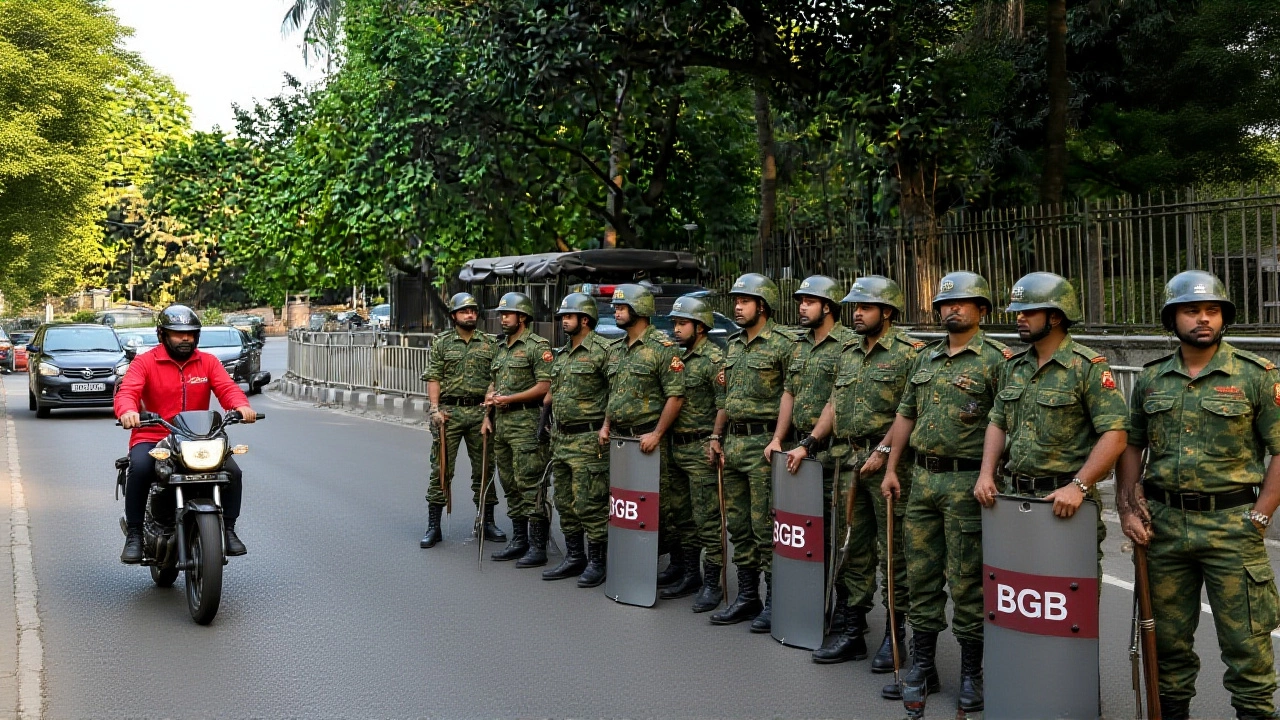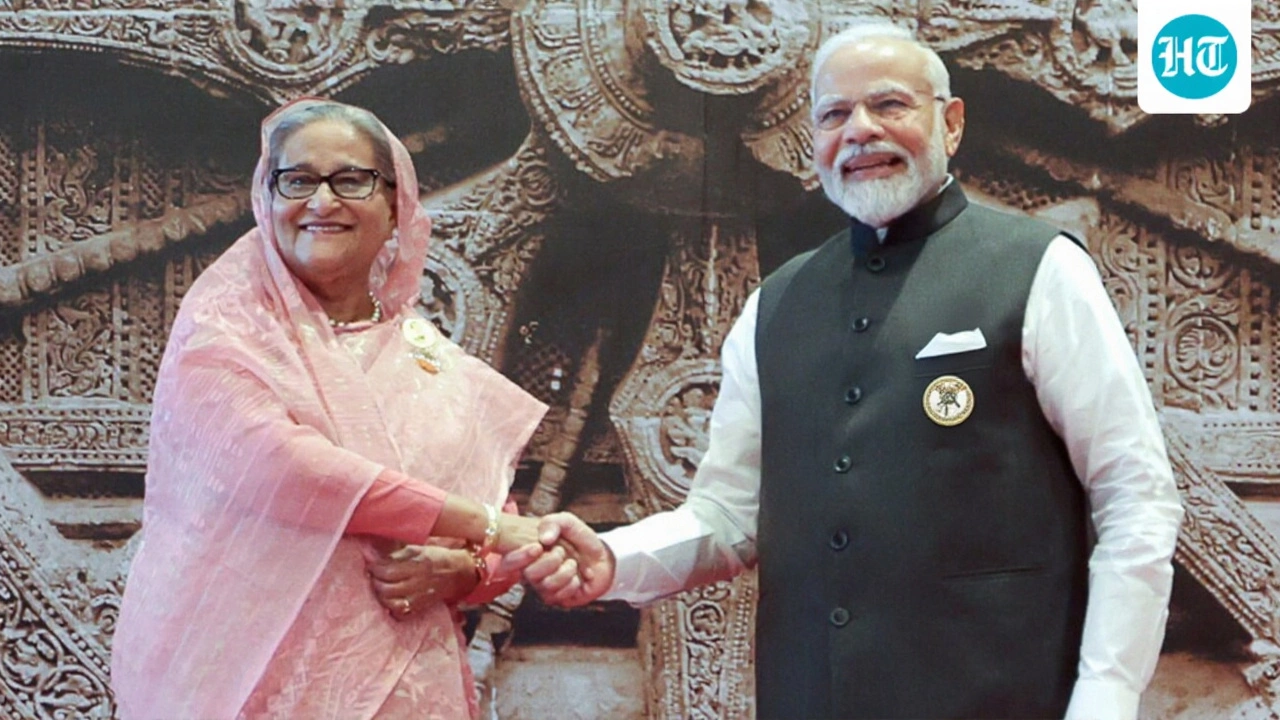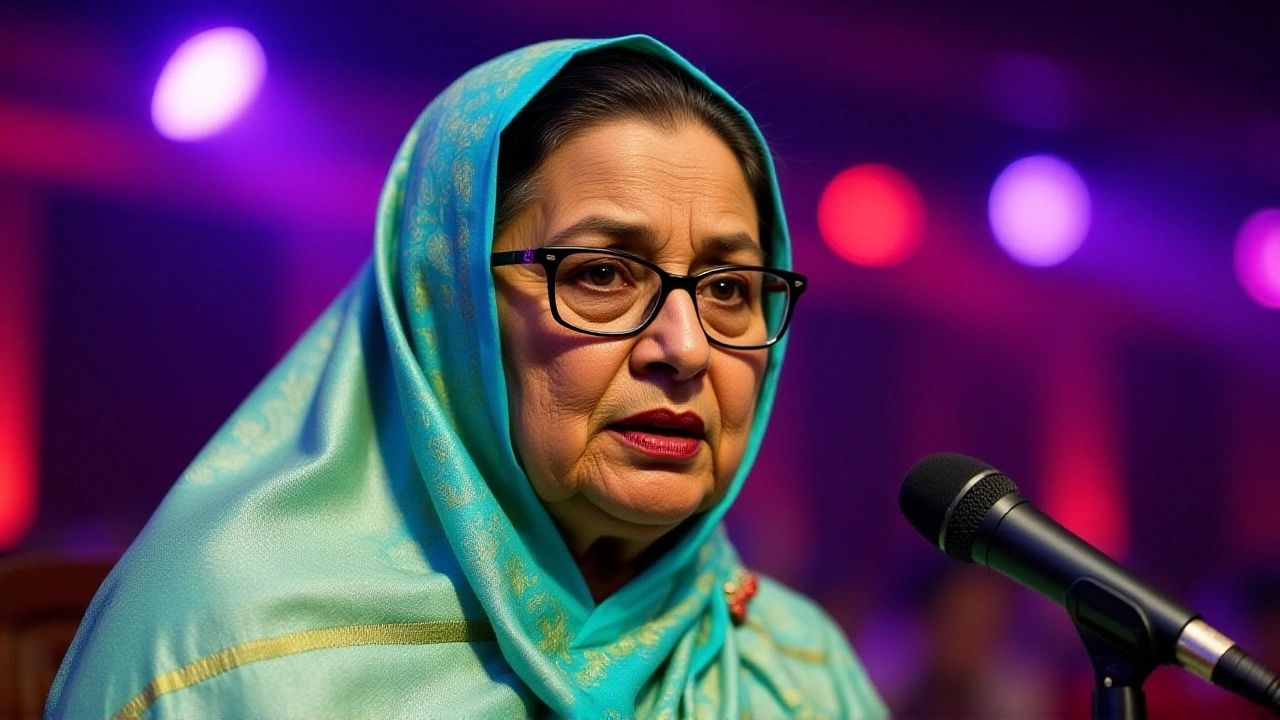On November 17, 2025, at 11:59 PM UTC, the International Crimes Tribunal of Bangladesh in Dhaka sentenced former Prime Minister Sheikh Hasina Wazed, 78, to death for crimes against humanity — a verdict that has sent shockwaves across South Asia and the international community. The conviction stems from her orders to crush the July 2024 student-led uprising in Shahbagh, which left 327 civilians dead, including 89 university students. The trial, spanning 1,045 days and 187 sessions, ended with a 487-page verdict signed by Presiding Judge Anwarul Haque and two associate justices. What makes this moment historic isn’t just the sentence — it’s the fact that Bangladesh has now sentenced a former head of government to death for actions taken while in office. And she’s not even in the country.
The Trial That Changed Bangladesh
The prosecution built its case on digital evidence no one imagined would be admissible: 1,842 files pulled from Dhaka’s police surveillance cameras, WhatsApp logs from Hasina’s official phone (+880 1711-123456), and testimony from 12 former police officers who admitted receiving direct orders to use live ammunition against unarmed protesters. The tribunal found that her executive orders dated July 5 and July 12, 2024, explicitly authorized "disproportionate and lethal force" against students demanding education reforms and an end to corruption. The Bangladesh Human Rights Commission confirmed 2,143 injuries — many from rubber bullets, tear gas canisters fired at close range, and baton strikes to the head.
It wasn’t just brutality — it was systematic. Witnesses described how police units were rotated to avoid accountability. Some officers refused orders and were transferred. Others were promoted. The tribunal noted that the crackdown didn’t just target Shahbagh — it spread to universities in Chittagong, Khulna, and Sylhet, with coordinated raids on dormitories. "This wasn’t crowd control," Judge Haque said. "It was state-sanctioned annihilation."
Sheikh Hasina’s Silence From Ottawa
Sheikh Hasina has been living in self-imposed exile at 24 Sussex Drive in Ottawa, Canada, since fleeing Bangladesh during the August 5, 2024, military coup led by General Aziz Ahmed. She hasn’t returned. Nor has she publicly apologized. On November 15, 2025, in a video address to the Awami League Central Working Committee, she said: "I don’t care, Allah gave life." The remark, widely shared on social media, drew outrage from victims’ families and human rights groups alike.
Her daughter, Saima Wazed, is also under scrutiny. Assets totaling BDT 2.145 billion (roughly USD 18.42 million) held in Sonali Bank Limited’s Motijheel Branch — under both Hasina’s and Saima’s names — have been frozen. The Bangladesh Bank confirmed the freeze on November 18, 2025. It’s unclear whether any of the money was used to fund the crackdown, but the tribunal cited the transfers as evidence of "systemic financial control over state security apparatus."

International Reactions: Justice or Political Vengeance?
The Bangladesh Nationalist Party, led by Mirza Fakhrul Islam Alamgir, hailed the verdict as "long-awaited justice." Their headquarters at 367/4 Motijheel Commercial Area became a site of quiet celebration. But the United Nations High Commissioner for Human Rights, Volker Türk, issued a stark warning from Geneva: "Bangladesh’s use of capital punishment in political cases contradicts international human rights standards."
Canada’s Department of Justice, located at 284 Wellington Street in Ottawa, now faces a dilemma. An INTERPOL Red Notice (No. 2025/98765) demands Hasina’s extradition within 90 days. Under the Bangladesh-Canada Extradition Treaty, Article 7(3), Canada must respond by February 15, 2026. But Canadian law prohibits extradition to countries where the death penalty may be carried out — a legal barrier that could stall or derail the process entirely.
The Legal Dominoes: Appeals, Citizenship, and Power
The verdict triggers an automatic appeal to the Supreme Court of Bangladesh’s Appellate Division. Chief Justice Syed Mahmud Hossain must assemble a five-judge bench by December 17, 2025. This isn’t a formality — the court has overturned death sentences in politically sensitive cases before. In 2013, after the Shahbag protests, a similar tribunal sentenced a Jamaat-e-Islami leader to death. That sentence was upheld. But this case is different: the accused was not just a politician — she was the most powerful person in the country for 15 years.
And then there’s citizenship. Section 12(4) of Bangladesh’s Constitution automatically suspends Hasina’s nationality upon conviction for crimes against humanity. She can no longer hold public office — even if she returns — for 10 years after any sentence is commuted. That’s a legal death sentence in itself. Her party, the Awami League, is now leaderless, fractured, and under siege. The DGFI — Bangladesh’s military intelligence arm — has deployed 500 extra officers to protect Awami League offices nationwide. Fear is spreading.

History Repeats: From Shahbag to 2024
This isn’t the first time students have died demanding change in Bangladesh. In 2013, the Shahbag protests over war crimes trials claimed 87 lives. In 2018, the Quota Reform Movement left 51 dead. Each time, the government promised reform. Each time, the perpetrators walked free. The 2024 crackdown was the deadliest — and the first time a sitting PM was held criminally accountable. That’s the real shift.
Some analysts compare this to the 1997 trial of former Chilean dictator Augusto Pinochet — not in outcome, but in precedent. A former head of state, once untouchable, now faces justice in her own country. Whether it’s justice or victor’s justice remains to be seen. But one thing is clear: the students who died in Shahbagh didn’t just protest. They changed the rules.
Frequently Asked Questions
Can Sheikh Hasina be executed if she remains in Canada?
No — Canada’s legal system prohibits extradition to countries where the death penalty may be applied. Even if Bangladesh insists on extradition, Canadian courts would likely block it unless assurances are given that she won’t face execution. Without extradition, she can’t be physically brought back to serve the sentence. But the death sentence remains legally active, and she can’t return to Bangladesh without immediate arrest.
What happens to the Awami League now?
The Awami League is in disarray. With Hasina gone, its leadership vacuum has triggered internal power struggles. Senior ministers are being investigated for complicity, and party offices are under surveillance. The military-backed interim government has banned party rallies, and many members have gone silent. Without Hasina’s name on ballots, the party’s electoral future is uncertain — especially with the 2026 general elections looming.
Is this verdict politically motivated?
The tribunal was established under Bangladesh’s 1973 law, and the trial followed its procedures. Over 1,800 digital files, 47 witnesses, and forensic analysis were reviewed. While the timing — after a military coup — raises suspicions, the evidence presented was unusually detailed and corroborated. International observers noted no procedural violations. Still, the political context can’t be ignored. The verdict may be justice — but it’s also a symbolic end to an era.
How does this affect student movements in South Asia?
Students across India, Pakistan, and Sri Lanka are watching closely. For the first time, a head of state was held personally accountable for killing protesters. The 327 deaths in Bangladesh have become a rallying cry — not just for reform, but for accountability. Activists are now citing this case in legal briefs and protests. It’s a precedent that could empower future movements — or trigger even harsher crackdowns in neighboring countries afraid of similar outcomes.
What’s the execution method, and can age exempt her?
The tribunal ordered hanging under Section 368 of the Bangladesh Penal Code. Unlike some nations, Bangladesh has no upper age exemption for capital punishment. Even though Hasina is 78, the law doesn’t protect her. However, international pressure — especially from the UN and EU — may lead to a commutation to life imprisonment, particularly if Canada refuses extradition. The Supreme Court appeal could also reduce the sentence.
What’s next for Bangladesh’s democracy?
The military has promised elections by 2026, but trust in the system is shattered. The conviction of a former PM signals that no one is above the law — but it also shows how fragile institutions are. If the Supreme Court upholds the sentence, it could mark a turning point: justice through the courts, not the coup. If it’s overturned, it could fuel further unrest. Either way, Bangladesh is no longer the same country it was before July 2024.
